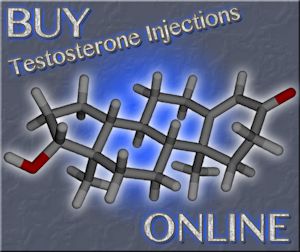Introduction to Achilles Tendon Injuries
Achilles tendon injuries are a common concern among American male runners, often resulting from overuse or sudden increases in training intensity. These injuries can range from mild inflammation to complete ruptures, significantly impacting an athlete's performance and quality of life. Sports medicine plays a crucial role in both preventing and managing these injuries, offering strategies that can help runners maintain their health and continue their sport.
Understanding the Achilles Tendon
The Achilles tendon is the largest tendon in the body, connecting the calf muscles to the heel bone. It is essential for activities that involve running, jumping, and walking. Due to its high load-bearing capacity, the Achilles tendon is susceptible to injuries, especially in athletes who engage in repetitive high-impact activities. Understanding the anatomy and function of the Achilles tendon is fundamental for developing effective prevention strategies.
The Role of Sports Medicine in Prevention
Sports medicine professionals, including physicians, physical therapists, and athletic trainers, are at the forefront of preventing Achilles tendon injuries. They employ a multifaceted approach that includes education, biomechanical analysis, and tailored training programs. Education is key, as it helps runners understand the importance of gradual training progression and proper footwear. Biomechanical analysis can identify movement patterns that may predispose an individual to injury, allowing for corrective measures to be implemented.
Training and Conditioning Programs
One of the primary strategies in preventing Achilles tendon injuries is the implementation of specific training and conditioning programs. These programs focus on strengthening the muscles around the Achilles tendon, improving flexibility, and enhancing overall lower limb biomechanics. Eccentric exercises, which involve lengthening the muscle while it is under tension, have been shown to be particularly effective in strengthening the Achilles tendon and reducing the risk of injury.
The Importance of Proper Footwear
Choosing the right footwear is another critical aspect of injury prevention. Running shoes should provide adequate support and cushioning to minimize the impact on the Achilles tendon. Sports medicine professionals can offer guidance on selecting the appropriate footwear based on an individual's foot type, running style, and training intensity. Additionally, they may recommend orthotic devices to correct biomechanical issues that could contribute to Achilles tendon strain.
Injury Management and Rehabilitation
Despite the best preventive efforts, Achilles tendon injuries can still occur. When they do, prompt and effective management is essential to ensure a full recovery. Sports medicine professionals can provide immediate care, such as rest, ice, compression, and elevation (RICE), followed by a structured rehabilitation program. This program typically includes a combination of physical therapy, gradual reintroduction to running, and ongoing monitoring to prevent re-injury.
The Role of Technology in Injury Prevention
Advancements in technology have also contributed to the prevention of Achilles tendon injuries. Wearable devices can track an athlete's training load and biomechanics, providing valuable data that can be used to adjust training programs and prevent overuse. Additionally, ultrasound and MRI imaging can help diagnose injuries early, allowing for timely intervention and reducing the risk of long-term damage.
Conclusion: A Holistic Approach to Injury Prevention
Preventing Achilles tendon injuries in American male runners requires a holistic approach that combines education, proper training, appropriate footwear, and advanced technology. Sports medicine professionals play a vital role in this process, offering expertise and support to help runners stay healthy and active. By following the strategies outlined by sports medicine, American male runners can reduce their risk of Achilles tendon injuries and enjoy the many benefits of running.
Contact Us Today For A Free Consultation

- Preventing Ankle Injuries in American Male Volleyball Players: A Comprehensive Guide [Last Updated On: February 18th, 2025] [Originally Added On: February 18th, 2025]
- Sports Medicine: Essential for American Male Triathletes' Performance and Health [Last Updated On: March 16th, 2025] [Originally Added On: March 16th, 2025]
- Wrist Injuries in Snowboarding: Types, Mechanisms, and Prevention for American Males [Last Updated On: March 17th, 2025] [Originally Added On: March 17th, 2025]
- Sports Medicine Innovations Aid American Male Rowers with Lower Back Pain [Last Updated On: March 17th, 2025] [Originally Added On: March 17th, 2025]
- Sports Medicine's Role in Preventing Overuse Injuries Among American Male Climbers [Last Updated On: March 18th, 2025] [Originally Added On: March 18th, 2025]
- Optimizing Recovery for American Male Martial Artists: Nutrition, Techniques, and Mental Health [Last Updated On: March 18th, 2025] [Originally Added On: March 18th, 2025]
- Sports Medicine's Vital Role in Injury Management for American Male Figure Skaters [Last Updated On: March 18th, 2025] [Originally Added On: March 18th, 2025]
- Sports Medicine's Crucial Role in BMX Rider Recovery and Rehabilitation [Last Updated On: March 19th, 2025] [Originally Added On: March 19th, 2025]
- Hamstring Injuries in American Male Sprinters: Treatment, Rehabilitation, and Prevention Strategies [Last Updated On: March 21st, 2025] [Originally Added On: March 21st, 2025]
- Sports Medicine Enhances Performance and Health in American Male Water Polo Athletes [Last Updated On: March 21st, 2025] [Originally Added On: March 21st, 2025]
- Surfing Injuries in American Males: Prevention, Treatment, and Sports Medicine Advances [Last Updated On: March 21st, 2025] [Originally Added On: March 21st, 2025]
- Sports Medicine Innovations Aid American Male Cyclists with Hip Issues [Last Updated On: March 21st, 2025] [Originally Added On: March 21st, 2025]
- Knee Health Strategies for American Male Ultimate Frisbee Players [Last Updated On: March 21st, 2025] [Originally Added On: March 21st, 2025]
- Sports Medicine Enhances Performance and Health in American Male Polo Players [Last Updated On: March 22nd, 2025] [Originally Added On: March 22nd, 2025]
- Sports MedicineTransforms CrossFit: Enhancing Performance and Safety for American Male Athletes [Last Updated On: March 23rd, 2025] [Originally Added On: March 23rd, 2025]
- Rotator Cuff Injuries in American Male Swimmers: Diagnosis, Treatment, and Prevention [Last Updated On: March 23rd, 2025] [Originally Added On: March 23rd, 2025]
- Preventing Shoulder Injuries in Lacrosse Goalies: Innovative Sports Medicine Techniques [Last Updated On: March 23rd, 2025] [Originally Added On: March 23rd, 2025]
- Sports Medicine Enhances Performance and Longevity in American Male Fencers [Last Updated On: March 23rd, 2025] [Originally Added On: March 23rd, 2025]
- Sports Medicine's Role in Enhancing American Male Badminton Players' Careers [Last Updated On: March 23rd, 2025] [Originally Added On: March 23rd, 2025]
- Managing Tendonitis in American Male Tennis Players: Sports Medicine Approaches [Last Updated On: March 23rd, 2025] [Originally Added On: March 23rd, 2025]
- Sports Medicine's Vital Role in American Male Rugby Sevens Performance and Health [Last Updated On: March 23rd, 2025] [Originally Added On: March 23rd, 2025]
- Sports Medicine Advances Enhancing Baseball Pitchers' Career Longevity [Last Updated On: March 24th, 2025] [Originally Added On: March 24th, 2025]
- Ankle Health Strategies for American Male Beach Volleyball Players [Last Updated On: March 24th, 2025] [Originally Added On: March 24th, 2025]
- Sports Medicine's Role in Preventing Shin Splints in American Male Runners [Last Updated On: March 24th, 2025] [Originally Added On: March 24th, 2025]
- Sports Medicine Benefits for American Male Table Tennis Players: Performance and Health [Last Updated On: March 24th, 2025] [Originally Added On: March 24th, 2025]
- Ankle Health Strategies for American Male Basketball Point Guards: Prevention to Rehabilitation [Last Updated On: March 25th, 2025] [Originally Added On: March 25th, 2025]
- Preventing Hamstring Injuries in American Male Soccer Midfielders: A Comprehensive Approach [Last Updated On: March 25th, 2025] [Originally Added On: March 25th, 2025]
- Sports Medicine Revolutionizes Performance and Health for American Male Cyclists [Last Updated On: March 25th, 2025] [Originally Added On: March 25th, 2025]
- Sports Medicine Revolutionizes Training and Performance in American Male Handball [Last Updated On: March 25th, 2025] [Originally Added On: March 25th, 2025]
- Sports Medicine Advances Enhance Injury Management for American Male Field Hockey Players [Last Updated On: March 26th, 2025] [Originally Added On: March 26th, 2025]
- Preventing Stress Fractures in Male Runners: A Sports Medicine Approach [Last Updated On: March 26th, 2025] [Originally Added On: March 26th, 2025]
- Sports Medicine's Impact on Recovery Times in American Male Ice Hockey Players [Last Updated On: March 26th, 2025] [Originally Added On: March 26th, 2025]
- Sports Medicine: Essential for American Male Rugby Forwards' Health and Performance [Last Updated On: March 26th, 2025] [Originally Added On: March 26th, 2025]
- Preventing Back Injuries in American Male Rowers: A Sports Medicine Approach [Last Updated On: March 26th, 2025] [Originally Added On: March 26th, 2025]
- Sports Medicine Strategies for Recovery in American Football Wide Receivers [Last Updated On: March 26th, 2025] [Originally Added On: March 26th, 2025]
- Sports Medicine Advances Extend Careers of American Baseball Outfielders [Last Updated On: March 26th, 2025] [Originally Added On: March 26th, 2025]
- Optimal Recovery Strategies for American Male Soccer Forwards: A Comprehensive Guide [Last Updated On: March 26th, 2025] [Originally Added On: March 26th, 2025]
- Optimizing Recovery for American Male Soccer Goalkeepers: A Holistic Sports Medicine Approach [Last Updated On: March 27th, 2025] [Originally Added On: March 27th, 2025]
- Lacrosse Midfielders' Hip Injuries: Sports Medicine Advances and Rehabilitation Strategies [Last Updated On: March 27th, 2025] [Originally Added On: March 27th, 2025]
- Sports Medicine's Vital Role in Soccer Defenders' Recovery and Performance [Last Updated On: March 27th, 2025] [Originally Added On: March 27th, 2025]
- Sports Medicine Enhances Safety and Performance in American Male Trampoline Gymnastics [Last Updated On: March 27th, 2025] [Originally Added On: March 27th, 2025]
- Optimizing Muscle Health for American Male Speed Skaters: A Comprehensive Guide [Last Updated On: March 27th, 2025] [Originally Added On: March 27th, 2025]
- Cross-Country Skiing: Knee Health Strategies for American Male Athletes [Last Updated On: March 27th, 2025] [Originally Added On: March 27th, 2025]
- Lacrosse Shoulder Injuries: Sports Medicine's Role in Prevention and Treatment for Attackmen [Last Updated On: March 27th, 2025] [Originally Added On: March 27th, 2025]
- Managing Groin Injuries in American Male Hockey Players: Diagnosis, Treatment, and Prevention [Last Updated On: March 28th, 2025] [Originally Added On: March 28th, 2025]
- Sports Medicine's Role in Enhancing Volleyball Performance and Health for American Males [Last Updated On: March 28th, 2025] [Originally Added On: March 28th, 2025]
- Sports Medicine Benefits for American Male Track and Field Athletes: Performance and Recovery [Last Updated On: March 28th, 2025] [Originally Added On: March 28th, 2025]
- Sports Medicine's Vital Role in Managing Injuries of American Male Swimmers [Last Updated On: March 28th, 2025] [Originally Added On: March 28th, 2025]
- Knee Health Essentials for American Football Running Backs: Prevention and Recovery Strategies [Last Updated On: March 29th, 2025] [Originally Added On: March 29th, 2025]
- Sports Medicine's Impact on Basketball Forwards: Performance, Health, and Career Longevity [Last Updated On: March 29th, 2025] [Originally Added On: March 29th, 2025]
- Sports Medicine Enhances Performance and Health in American Male Cycling [Last Updated On: March 29th, 2025] [Originally Added On: March 29th, 2025]
- Sports Medicine's Vital Role in Enhancing American Male Swimmers' Performance and Health [Last Updated On: April 1st, 2025] [Originally Added On: April 1st, 2025]
- Sports Medicine's Role in Enhancing American Male Volleyball Players' Performance and Career Longevity [Last Updated On: April 1st, 2025] [Originally Added On: April 1st, 2025]
- Knee Health Strategies for American Male Cross-Country Skiers [Last Updated On: April 5th, 2025] [Originally Added On: April 5th, 2025]
- Sports Medicine Benefits for American Male Track and Field Athletes: Performance and Longevity [Last Updated On: April 5th, 2025] [Originally Added On: April 5th, 2025]
- Preventing Hamstring Injuries in American Male Soccer Midfielders: A Sports Medicine Approach [Last Updated On: April 5th, 2025] [Originally Added On: April 5th, 2025]
- Groin Injuries in Hockey: Diagnosis, Treatment, and Prevention Strategies [Last Updated On: April 6th, 2025] [Originally Added On: April 6th, 2025]
- Sports Medicine: Enhancing Performance and Health in Basketball Forwards [Last Updated On: April 6th, 2025] [Originally Added On: April 6th, 2025]
- Lacrosse Midfielders' Hip Injuries: Prevention, Treatment, and Performance Enhancement [Last Updated On: April 8th, 2025] [Originally Added On: April 8th, 2025]
- Sports Medicine's Vital Role in Enhancing Rugby Forwards' Health and Performance [Last Updated On: April 9th, 2025] [Originally Added On: April 9th, 2025]
- Sports Medicine's Vital Role in Enhancing Male Swimmers' Health and Performance [Last Updated On: April 9th, 2025] [Originally Added On: April 9th, 2025]
- Sports Medicine's Role in Enhancing Baseball Outfielders' Career Longevity [Last Updated On: April 10th, 2025] [Originally Added On: April 10th, 2025]
- Optimizing Recovery for American Male Soccer Forwards: A Holistic Approach [Last Updated On: April 10th, 2025] [Originally Added On: April 10th, 2025]
- Knee Health Strategies for American Football Running Backs: Prevention, Rehabilitation, and Technology [Last Updated On: April 10th, 2025] [Originally Added On: April 10th, 2025]
- Sports Medicine's Role in Preventing Achilles Tendon Injuries in American Male Runners [Last Updated On: April 11th, 2025] [Originally Added On: April 11th, 2025]
- Sports Medicine: Revolutionizing Performance and Health in Track and Field Athletics [Last Updated On: April 12th, 2025] [Originally Added On: April 12th, 2025]
- Sports Medicine Revolutionizes Performance and Health for American Male Cyclists [Last Updated On: April 13th, 2025] [Originally Added On: April 13th, 2025]
- Sports Medicine Techniques for Recovery in American Male Soccer Forwards [Last Updated On: April 15th, 2025] [Originally Added On: April 15th, 2025]
- Sports Medicine's Vital Role for American Male Rugby Forwards' Health and Performance [Last Updated On: April 15th, 2025] [Originally Added On: April 15th, 2025]
- Sports Medicine for Basketball Forwards: Prevention, Recovery, and Performance Enhancement [Last Updated On: April 16th, 2025] [Originally Added On: April 16th, 2025]
- Sports Medicine's Vital Role in Managing Hip Injuries for Lacrosse Midfielders [Last Updated On: April 16th, 2025] [Originally Added On: April 16th, 2025]
- Sports Medicine's Role in Enhancing Volleyball Performance and Health for American Males [Last Updated On: April 17th, 2025] [Originally Added On: April 17th, 2025]
- Managing Groin Injuries in American Male Hockey Players: Diagnosis to Recovery [Last Updated On: April 18th, 2025] [Originally Added On: April 18th, 2025]
- Cross-Country Skiing and Knee Health: Insights for American Male Skiers [Last Updated On: April 18th, 2025] [Originally Added On: April 18th, 2025]
- Preventing Hamstring Injuries in American Male Soccer Midfielders: A Sports Medicine Approach [Last Updated On: April 19th, 2025] [Originally Added On: April 19th, 2025]
- Knee Health Strategies for American Football Running Backs: Prevention and Recovery [Last Updated On: April 19th, 2025] [Originally Added On: April 19th, 2025]
- Sports Medicine Strategies to Prevent Achilles Tendon Injuries in American Male Runners [Last Updated On: April 19th, 2025] [Originally Added On: April 19th, 2025]
Word Count: 572





















